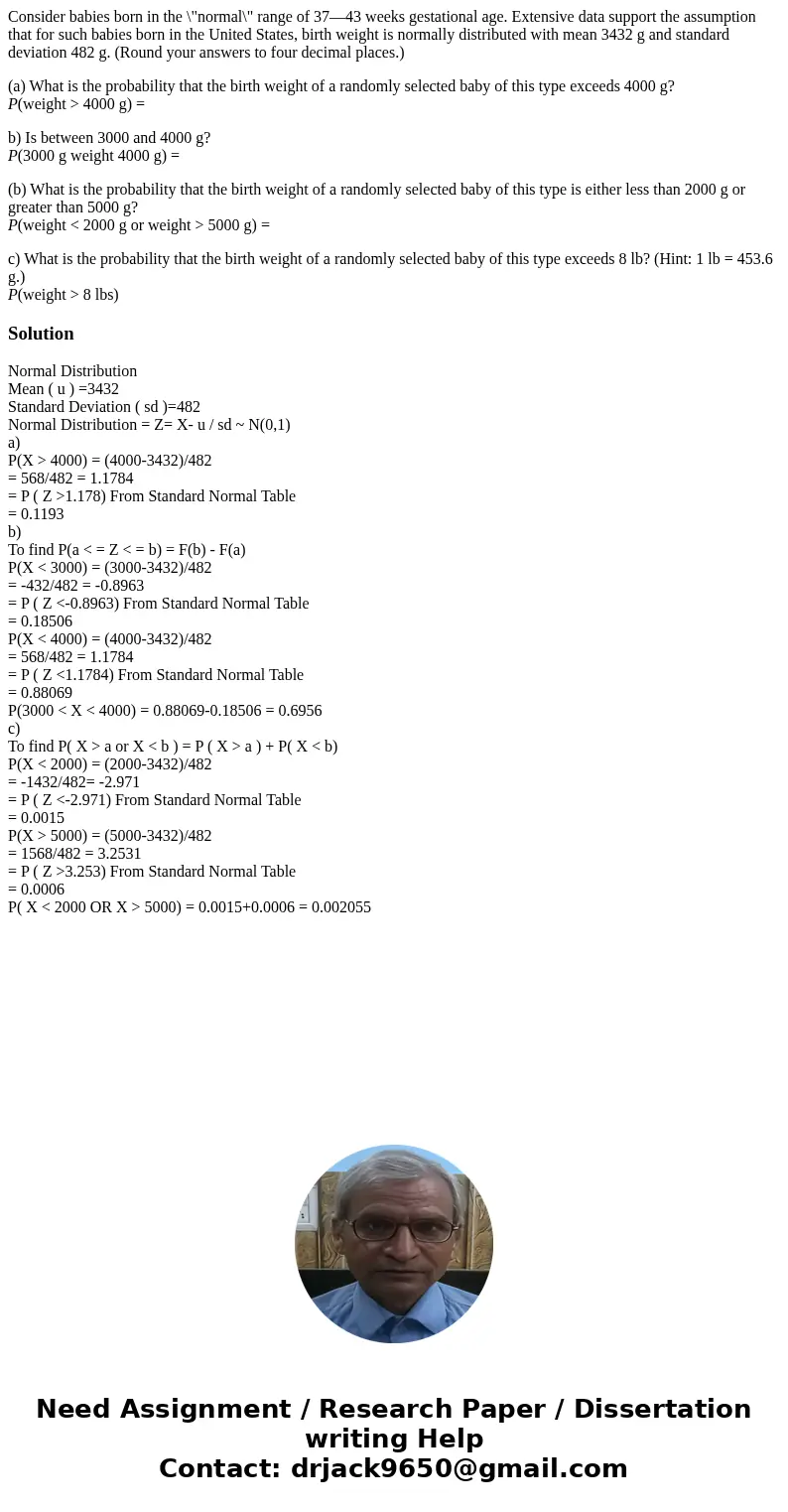Consider babies born in the normal range of 3743 weeks gesta
Consider babies born in the \"normal\" range of 37—43 weeks gestational age. Extensive data support the assumption that for such babies born in the United States, birth weight is normally distributed with mean 3432 g and standard deviation 482 g. (Round your answers to four decimal places.)
(a) What is the probability that the birth weight of a randomly selected baby of this type exceeds 4000 g?
P(weight > 4000 g) =
b) Is between 3000 and 4000 g?
P(3000 g weight 4000 g) =
(b) What is the probability that the birth weight of a randomly selected baby of this type is either less than 2000 g or greater than 5000 g?
P(weight < 2000 g or weight > 5000 g) =
c) What is the probability that the birth weight of a randomly selected baby of this type exceeds 8 lb? (Hint: 1 lb = 453.6 g.)
P(weight > 8 lbs)
Solution
Normal Distribution
Mean ( u ) =3432
Standard Deviation ( sd )=482
Normal Distribution = Z= X- u / sd ~ N(0,1)
a)
P(X > 4000) = (4000-3432)/482
= 568/482 = 1.1784
= P ( Z >1.178) From Standard Normal Table
= 0.1193
b)
To find P(a < = Z < = b) = F(b) - F(a)
P(X < 3000) = (3000-3432)/482
= -432/482 = -0.8963
= P ( Z <-0.8963) From Standard Normal Table
= 0.18506
P(X < 4000) = (4000-3432)/482
= 568/482 = 1.1784
= P ( Z <1.1784) From Standard Normal Table
= 0.88069
P(3000 < X < 4000) = 0.88069-0.18506 = 0.6956
c)
To find P( X > a or X < b ) = P ( X > a ) + P( X < b)
P(X < 2000) = (2000-3432)/482
= -1432/482= -2.971
= P ( Z <-2.971) From Standard Normal Table
= 0.0015
P(X > 5000) = (5000-3432)/482
= 1568/482 = 3.2531
= P ( Z >3.253) From Standard Normal Table
= 0.0006
P( X < 2000 OR X > 5000) = 0.0015+0.0006 = 0.002055

 Homework Sourse
Homework Sourse